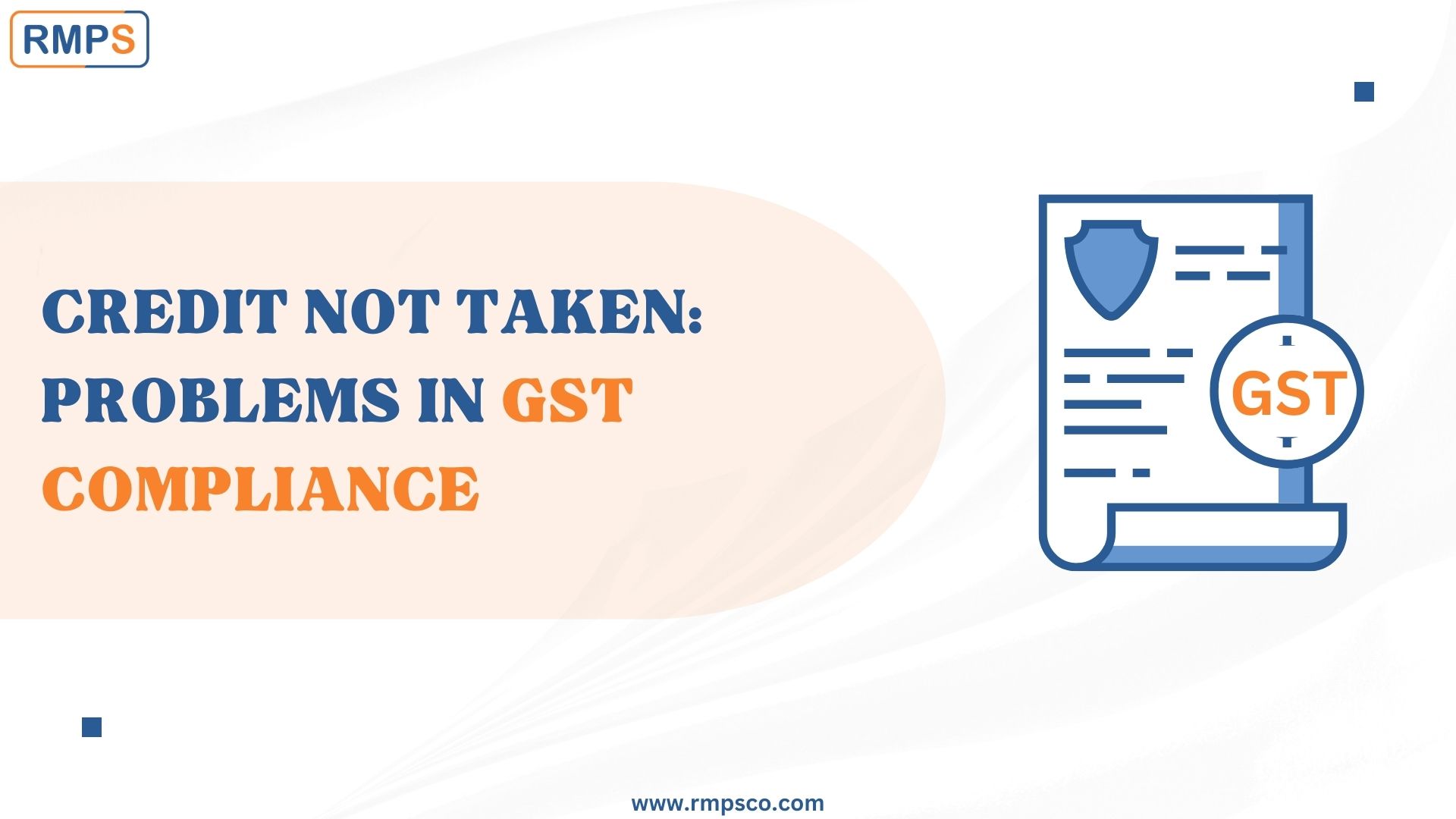
The Goods and Services Tax (GST) regime, implemented to simplify the tax structure in India, often presents challenges, especially regarding Input Tax Credit (ITC). One of the most significant issues faced by businesses is the inability to claim ITC, leading to increased financial burdens and compliance complexities. This blog explores the primary problems related to credit not taken in GST compliance and offers insights into mitigating these challenges.
Understanding Input Tax Credit (ITC)
ITC allows businesses to reduce the tax they have paid on inputs from the tax they need to pay on outputs. It’s a fundamental feature of GST intended to eliminate the cascading effect of taxes. However, claiming ITC can be intricate and fraught with issues.
Common Problems in GST Compliance Related to ITC
- Mismatch in GST Returns
- Problem: One of the most prevalent issues is the mismatch between GSTR-2A (auto-populated from supplier data) and GSTR-3B (self-declared summary return). Discrepancies arise due to incorrect entries by suppliers or timing differences in reporting.
- Solution: Regular reconciliation of purchase records with GSTR-2A is essential. Businesses should maintain meticulous records and follow up with suppliers to correct any mismatches.
- Blockage of ITC
- Problem: ITC can be blocked under certain conditions outlined in Section 17(5) of the CGST Act. This includes purchases of goods or services like motor vehicles, food and beverages, and outdoor catering.
- Solution: Businesses should thoroughly understand the conditions under which ITC is blocked and ensure compliance by avoiding such ineligible credits in their returns.
- Delay in Invoice Upload by Suppliers
- Problem: If suppliers delay uploading invoices, it affects the recipient’s ability to claim ITC promptly.
- Solution: Implementing strong vendor management practices, including timely follow-ups and possibly contractual agreements mandating timely invoice uploads, can help mitigate this issue.
- Technical Glitches on GST Portal
- Problem: Frequent technical issues on the GST portal can hinder the timely filing of returns and claiming of ITC.
- Solution: Regularly check the GST portal for updates and advisories. Keeping backup records and being proactive in filing returns can help manage this problem.
- Non-Compliance by Suppliers
- Problem: Suppliers not complying with GST regulations can impact a buyer’s ITC claims. Non-filing of GSTR-1 by suppliers means that their buyers cannot see the invoices in GSTR-2A.
- Solution: Conducting due diligence before onboarding suppliers and ongoing compliance checks can reduce this risk.
- Errors in Invoice Details
- Problem: Errors in details such as GSTIN, invoice number, or HSN/SAC codes can lead to denial of ITC.
- Solution: Double-checking invoices for accuracy before filing returns and training staff on GST compliance can significantly reduce errors.
Steps to Ensure Smooth ITC Claims
- Regular Reconciliation: Frequently reconcile purchase records with GSTR-2A data.
- Vendor Management: Ensure suppliers are compliant and upload invoices timely.
- Training and Awareness: Regularly train staff on GST compliance requirements.
- Use of Technology: Leverage software solutions for automated reconciliation and error detection.
Conclusion
Navigating the complexities of GST compliance, particularly regarding ITC, requires diligent effort and a proactive approach. By understanding the common problems and implementing best practices, businesses can better manage their ITC claims and avoid the pitfalls of non-compliance.
Implementing these strategies not only ensures smoother operations but also enhances financial efficiency under the GST regime.
LinkedIn Link : RMPS Profile
This article is only a knowledge-sharing initiative and is based on the Relevant Provisions as applicable and as per the information existing at the time of the preparation. In no event, RMPS & Co. or the Author or any other persons be liable for any direct and indirect result from this Article or any inadvertent omission of the provisions, update, etc if any.
Published on: June 21, 2024
